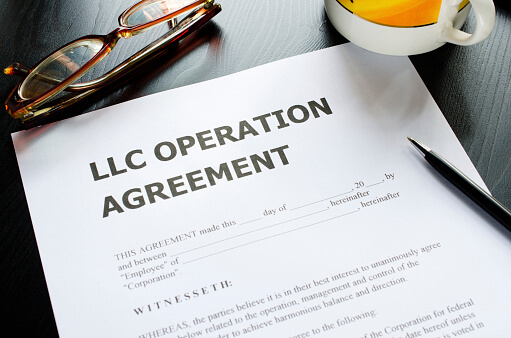Wenn Sie planen, sich selbstständig zu machen, fragen Sie sich vielleicht, welche Vor- und Nachteile eine Einzelunternehmung mit sich bringt. Es lohnt sich, eine eigene Unternehmensstruktur aufzubauen, ohne andere Partner mit einzubeziehen?
Einzelunternehmen haben ihre Tücken, aber sie bieten auch einige Vorteile. Lesen Sie weiter, um mehr über die Vorteile und Nachteile eines Einzelunternehmens zu erfahren und herauszufinden, ob es das Richtige für Sie ist.
Hinweis: Wenn Sie ein Einzelunternehmer sind und Hilfe bei Rechnungen, Verträge, Steuern und Angebote benötigen, probieren Sie Bonsai. Unsere All-in-One-Software für Freiberufler erleichtert Ihnen die Führung Ihres Solopreneur-Unternehmens. Überzeugen Sie sich selbst davon, wie unsere App Ihnen die Führung Ihres Unternehmens erleichtern kann. Fordern Sie hier Ihre 7-tägige kostenlose Testversion hier.
Was ist ein Einzelunternehmen?
Wenn jemand Einzelunternehmer ist, bedeutet dies, dass er als alleiniger Eigentümer des Unternehmens registriert ist. Unter den Unternehmensstrukturen ist diese die einfachste Form, da keine Registrierung auf Bundesebene erforderlich ist.
Einzelunternehmer können Eigentümer eines Start-ups, Freiberufler, Personen mit Werkstätten oder Ladengeschäften, Kreative usw. sein. Ein Einzelunternehmer kann so viele Mitarbeiter einstellen, wie er möchte, aber er ist allein für die Zahlung der Löhne, Steuern und Sozialleistungen verantwortlich.

Was sind die Vorteile einer Einzelunternehmung?
Ein Einzelunternehmer zu sein hat seine Vorteile, was es zu einer geeigneten Option für diejenigen macht, die eine solche Unternehmensstruktur gründen möchten. Hier sind die Gründe, warum Einzelunternehmen so praktisch sind:
Sie sind sehr einfach zu etablieren.
Ein Einzelunternehmen ist sehr einfach zu gründen, da Sie weder Ihre Geschäftseinheit offiziell registrieren noch die staatlichen oder bundesstaatlichen Behörden benachrichtigen müssen. Sie müssen lediglich die Unternehmensgebühr registrieren, jedoch ohne die formalen Umwege einer LLC, und dann die erforderlichen Lizenzen und Genehmigungen einholen.
Dieser Vorteil macht es Ihnen recht einfach, ein Start-up zu gründen, das Sie nur als Nebentätigkeit nutzen. Dadurch können Sie sich nur teilweise für das Unternehmen engagieren, ohne dabei die Aufmerksamkeit zu vernachlässigen, die Sie Ihrem Hauptberuf widmen müssen.
Weniger Papierkram
Wenn es etwas gibt, das Unternehmer am besten wissen, dann ist es, dass Papierkram eine echte Qual sein kann. Beispielsweise besteht der Nachteil einer LLC oder einer Aktiengesellschaft darin , dass Sie jedes Jahr Dokumente einreichen müssen. Sie müssen Formulare ausfüllen, Steuern zahlen und Kopfschmerzen überwinden.
Bei einem Einzelunternehmen ist dies nicht der Fall. Die jährliche Einreichung dieser Dokumente ist nicht verpflichtend, und auch bei anderen Arten von Unterlagen wurde der Prozess vereinfacht. Einer der größten Vorteile eines Einzelunternehmens besteht darin, dass Sie nicht einmal einen Buchhalter bezahlen müssen, um sich die Arbeit zu erleichtern.
Sie können so viele Mitarbeiter einstellen, wie Sie möchten.
Sie sind vielleicht Einzelunternehmer, aber das bedeutet nicht, dass Sie allein sein müssen. Wenn man die Vor- und Nachteile eines Einzelunternehmens abwägt, geben die meisten Menschen einfach auf, weil sie glauben, dass sie der einzige Mitarbeiter des Unternehmens sein müssen.
Das ist keineswegs wahr. Als Einzelunternehmer können Sie so viele Mitarbeiter einstellen, wie Sie möchten. Solange Sie sich die Kosten leisten können, haben Sie rechtlich gesehen das Recht, Ihre Reichweite und Ihr Geschäft auszubauen – ohne sich formell in eine GmbH umwandeln oder das Kleinunternehmen eintragen zu lassen.
Zunächst einmal ist die Wahrscheinlichkeit sehr groß, dass Sie bei dieser Art von Geschäft auf sich allein gestellt sind. Sobald Ihr Einzelunternehmen jedoch Gewinne abwirft, können Sie so viele Mitarbeiter einstellen, wie Sie möchten. Dies sollte Ihnen ermöglichen, einen Sprung nach vorne zu machen und Ihre Gewinne noch weiter zu steigern.
Sie können den Namen Ihres Einzelunternehmens als Marke eintragen lassen.
Wenn Sie sich für ein Einzelunternehmen entscheiden, wird Ihr Name sehr oft zum Namen Ihres Unternehmens. Es besteht jedoch auch die Möglichkeit, unter einem bestimmten Firmennamen zu operieren. Sie müssen lediglich Ihre Marke beim US-Patent- und Markenamt ( ) registrieren lassen. Patent- und Markenamt.
Sie sollten zunächst das Suchsystem überprüfen, um sicherzustellen, dass niemand anderes unter dem von Ihnen gewünschten Namen registriert ist. Sie werden die Eigentümer des Namens sein – wählen Sie also etwas, das noch niemand anderes hat. Auf diese Weise werden Sie leichter erkannt.
Der gesamte Prozess dauert nicht länger als 90 Minuten, um als Geschäftsinhaber die Exklusivrechte an dem Namen zu erhalten. Dafür brauchen Sie nicht einmal einen Anwalt. Sobald dies erledigt ist, können Sie sich von Ihrer Konkurrenz abheben.
Sie erhalten die vollständige Kontrolle über das Kleinunternehmen.
Ein Einzelunternehmen ist an Ihren offiziellen Namen gebunden – Sie haben also die vollständige Kontrolle über Ihre Unternehmensform und deren Entwicklung. Sie haben keine Aktionäre, die Ihnen in den Kopf reden und Ihnen vorschreiben, was Sie tun sollen, und Sie haben keine juristischen Partner, die Ihnen Bedingungen stellen.
Diese Freiheit, eigene Entscheidungen für das Unternehmen zu treffen, gibt Ihnen auch die Flexibilität, zu experimentieren. Wenn Sie eine verrückte Idee haben, von der Sie glauben, dass sie viel Gewinn bringen könnte, müssen Sie nicht erst andere unsichere Aktionäre überzeugen, um sie auszuprobieren. Sie können tun, was Sie wollen.
Sie haften nur begrenzt für das Unternehmen, das Sie leiten. Sie unterliegen keinen strengen oder komplizierten Vorschriften. Einzelunternehmer haben die Freiheit, alle Entscheidungen zu treffen, die sie für richtig halten.

Es ist ein Sprungbrett für LLCs und Kapitalgesellschaften.
Wenn es um Einzelunternehmen im Vergleich zu LLCs geht, betrachten Sie diese als Sprungbrett für Unternehmen im Allgemeinen. Nehmen wir zum Beispiel eBay. Bevor Pierre Omidyar eBay gründete, betrieb er eine Plattform namens Auction We, deren alleiniger Eigentümer er war. Erst später gründete er das Unternehmen unter eBay, zu diesem Zeitpunkt hatte er bereits zahlreiche Mitarbeiter und mehr als eine Million Verkäufe.
Ein Einzelunternehmen vermittelt Ihnen die Grundlagen der Unternehmensführung – jedoch ohne die finanziellen und behördlichen Komplikationen einer LLC. Sie werden sozusagen ein Unternehmer ohne jegliche Verpflichtungen sein. Sicher, Sie haben nur eine beschränkte Haftung, aber es ermöglicht Ihnen, ein Unternehmen zu gründen, das später als LLC oder Aktiengesellschaft erfolgreich sein kann.
Die Gebühren für die Geschäftseinheit sind niedriger.
Im Vergleich zu jeder anderen Unternehmensform muss der Inhaber eines Einzelunternehmens weniger Gebühren zahlen. Wenn Sie beispielsweise Einzelunternehmer sind, müssen Sie nicht so viele Registrierungsgebühren zahlen wie bei einer Kapitalgesellschaft.
Da Sie Eigentümer einer Einzelunternehmung sind, haben Sie und Ihr Unternehmen dieselbe Rechtspersönlichkeit. Aus diesem Grund ist es nicht erforderlich, Ihr Unternehmen anzumelden – vor allem, weil Sie sich bereits als Einzelunternehmer registriert haben.
Die einzige Ausnahme besteht darin, dass Sie für die Unternehmensstruktur einen anderen Namen als Ihren eigenen rechtlichen Namen verwenden. In diesem Fall müssen Sie Ihr Unternehmen registrieren lassen.
Sie können Ihren Firmennamen offiziell registrieren lassen, wenn Sie möchten, da Ihnen dies möglicherweise einen viel größeren Schritt in Ihrer beruflichen Laufbahn ermöglicht. Wenn Sie jedoch derzeit nicht über die finanziellen Mittel für eine Registrierung verfügen oder diese auf einen späteren Zeitpunkt verschieben möchten, ist ein Einzelunternehmen hier von Vorteil.
Bankgeschäfte sind recht unkompliziert
Bei Einzelunternehmen ist die Führung eines Geschäftskontos recht unkompliziert. Ein Einzelunternehmer muss weder ein Geschäftskonto eröffnen noch irgendwelche Verpflichtungen gegenüber Finanzinstituten in Bezug auf ein Geschäftskonto eingehen. Wenn es Ihnen ein besseres Gefühl gibt, können Sie einfach Ihr eigenes Bankkonto verwenden, um Ihre Geschäftsausgaben zu tätigen.
Um Ihnen die Sache zu erleichtern, möchten Sie vielleicht dennoch ein separates Girokonto unter Ihrem Namen einrichten. Sie müssen nicht einmal Ihre Bank wechseln. Bei den meisten Banken können Sie online separate Konten eröffnen, sodass Sie nur zwischen diesen hin- und herwechseln müssen. Dadurch wird es für Sie viel einfacher, Ihre Ausgaben im Blick zu behalten, ohne sich dabei den Kopf zu zerbrechen.
Sie unterliegen nicht so strengen staatlichen Vorschriften.
Was staatliche Vorschriften angeht, stehen Einzelunternehmen weniger unter Druck. Sie müssen sicherstellen, dass Sie über eine Gewerbeberechtigung verfügen und die örtlichen Vorschriften einhalten. Was jedoch staatliche Vorschriften und Regeln angeht, sind Sie nicht so eingeschränkt.
Als Inhaber eines Einzelunternehmens müssen Sie keine Körperschaftssteuer zahlen. Sie können einfach und unauffällig agieren – etwas, das Ihnen als Eigentümer eines größeren Unternehmens möglicherweise nicht möglich wäre.
Was sind die Nachteile einer Einzelunternehmung?
Zwar bieten Einzelunternehmen viele Vorteile, doch gibt es auch einige Nachteile, die Sie beachten sollten. Hier sind die Nachteile von Einzelunternehmen:
Sie haften persönlich
Einer der größten Nachteile von Einzelunternehmen hängt stark mit den Vorteilen zusammen, die diese Unternehmer genießen. Als Einzelunternehmer haben Sie beispielsweise die volle Freiheit, mit Ihrem Unternehmen zu tun, was Sie wollen, alle notwendigen Entscheidungen zu treffen und so viele Mitarbeiter einzustellen, wie Sie benötigen.
Bei diesen Unternehmensformen haften Sie jedoch auch vollständig für alles, was Sie tun. Sie sind für die finanziellen Aspekte verantwortlich, und wenn Ihr Unternehmen scheitert, haften Sie auch für die Verluste. Die beschränkte Haftung ist einer der größten Vorteile einer Unternehmensgründung.
Als Inhaber eines Einzelunternehmens müssen Sie selbst für Ihre Schulden aufkommen, die Auftragnehmer bezahlen, Löhne zahlen und die Versicherungen für Ihre Kunden übernehmen. Alle rechtlichen Eventualitäten liegen in Ihrer Verantwortung.
Wenn Ihr kleines Unternehmen beispielsweise wegen Fehlverhalten verklagt wird oder Sie in Konkurs gehen, können Ihre persönlichen Vermögenswerte gepfändet werden, um die Schulden zu begleichen. Dazu gehören Ihr Auto, Ihr Haus, Ihr Bankkonto oder andere persönliche Vermögenswerte, die Sie möglicherweise besitzen.
Dies unterscheidet ein Einzelunternehmen von der üblichen Unternehmensstruktur, bei der die rechtlichen Aspekte von Ihren persönlichen Angelegenheiten getrennt sind. Wenn das Unternehmen in Schwierigkeiten gerät, besteht daher kein Risiko, dass Ihr persönliches Vermögen gepfändet wird.
Außerdem sind Einzelunternehmer für die Zahlung ihrer eigenen Selbstständigensteuern verantwortlich. Beispielsweise Sozialversicherung und Medicare – das sind Steuern, um die Sie sich selbst kümmern müssen.

Geldbeschaffung kann schwierig sein
Die Startkosten für diese Art von Unternehmen sind gering, aber einer der größten Nachteile eines Einzelunternehmens besteht darin, dass die Beschaffung von Geld und Kapital schwierig sein kann.
Da Sie für alle Schulden Ihres Unternehmens haften, sind Sie auch für die Begleichung aller anderen Verbindlichkeiten verantwortlich. Dazu gehören Lieferanten, Arbeitskosten, Gemeinkosten und vieles mehr.
Da Sie einen Großteil Ihrer Ausgaben aus Ihren eigenen Geschäftseinnahmen bestreiten müssen, haben Sie möglicherweise nicht viele Möglichkeiten, Ihr Kapital zu erhöhen. Ihre beschränkte Haftung kann Sie verwundbar machen, und Ihr gesamtes persönliches Vermögen ist an Ihr Unternehmen gebunden.
Der Verkauf könnte sich als schwierig erweisen
Vielleicht möchten Sie nicht über die Möglichkeit nachdenken, Ihr Unternehmen zu verkaufen – aber das bedeutet nicht, dass diese Möglichkeit nicht besteht. Wenn Sie Ihr Unternehmen jedoch verkaufen müssen, könnten Sie auf eine weitere Hürde stoßen: Es kann sein, dass niemand bereit ist, Einzelunternehmen zu kaufen.
Der Grund dafür ist einfach. Einzelunternehmen haben Schulden – und wenn jemand dieses Unternehmen von Ihnen kauft, kauft er auch Ihre Schulden. Wenn Sie hohe Schulden oder eine hohe Kapitalertragssteuer haben, könnte es schwierig sein, das Unternehmen zu verkaufen.
Es ist schwieriger, Geschäftskredite und Finanzierungen zu erhalten.
Für Inhaber von Einzelunternehmen kann es schwieriger sein als für andere, einen Geschäftskredit zu erhalten. Das liegt daran, dass LLCs und Kapitalgesellschaften einen bestimmten rechtlichen Unterschied aufweisen, der sie zuverlässiger macht. Einzelunternehmer haben das nicht, was sie in den Augen der Gläubiger weniger vertrauenswürdig macht.
Es könnte Ihnen schwerfallen, Ihre Ausgaben nachzuverfolgen.
Das Problem bei Einzelunternehmen ist, dass die meisten Menschen ihre privaten Konten für Zahlungen nutzen. Einerseits macht es die Dinge einfacher, da Sie nur ein Konto verwenden.
Andererseits geraten Ihre Ausgaben durcheinander. Unabhängig davon, ob Sie eine geschäftliche oder private Zahlung tätigen, wird alles auf demselben Kontoauszug aufgeführt – und wenn Sie keine eindeutige Beschreibung oder Quittung für diese Zahlung haben, wissen Sie möglicherweise nicht einmal, um welche Zahlung es sich handelt.
Bei einem Einzelunternehmen besteht die Gefahr, dass Sie Ihre privaten Ausgaben mit den Geschäftsausgaben vermischen und dadurch den Überblick verlieren. Außerdem könnten Sie bei der Steuererklärung möglicherweise Steuerabzüge verlieren (oder etwas abziehen, was Sie nicht abziehen sollten), nur weil Sie verwirrt waren.
Einzelunternehmer können zwar zu diesem Zweck ein Geschäftskonto eröffnen, aber nur sehr wenige tun dies tatsächlich. Dies kann langfristig zu finanziellen Problemen führen.
Steuervorteile eines Einzelunternehmens
Einzelunternehmen haben bei der Steuererklärung ihre eigenen Steuervorteile. Der Hauptvorteil liegt in ihrer Einfachheit, da weniger Anforderungen in Bezug auf Unternehmenssteuern bestehen.
Gewerbesteuern müssen nicht getrennt ausgewiesen werden. Sie müssen lediglich Ihre Geschäftseinkünfte zusammen mit Ihren Verlusten bei der Einreichung Ihrer persönlichen Steuererklärung angeben.
Als Einzelunternehmer zahlen Sie keine Steuern auf Ihr gesamtes Geschäftseinkommen. Stattdessen zahlen Sie nur Steuern für den potenziellen Gewinn, den Sie erzielen. Sie zahlen keine Steuern für die Einkünfte, die Sie für geschäftliche Ausgaben verwenden, was Ihnen tatsächlich dabei helfen kann, Ihre Verluste zu reduzieren.
Das Fazit
Einzelunternehmen haben ihre Vor- und Nachteile. Wenn Sie feststellen, dass die Vorteile die Nachteile überwiegen, dann könnte diese Art von Kleinunternehmen genau das Richtige für Sie sein. Setzen Sie sich einfach hin und analysieren Sie sorgfältig die Vor- und Nachteile, bevor Sie eine Entscheidung treffen.






